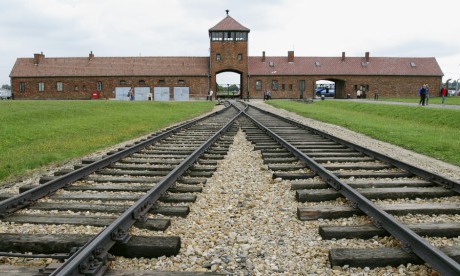“I think it’s fair to say,” says Géza Röhrig softly, “that we haven’t learned anything from Auschwitz. The cruelty exhibited there exists today against the Kurds and elsewhere.
“You have a feeling of insecurity about tomorrow. There’s a level of chaos because global powers do not agree on the most minimal consensus.”
Röhrig is the star of Son of Saul, a tense, almost unbearable thriller set in Auschwitz in 1944 among the Sonderkommando – prisoners given a stay of execution to work in the gas chambers.
It’s so frank and unflinching, it makes even the finest of previous Holocaust films look crass. “With movies like Schindler’s List, you have an evil guy and you have a good guy,” says Röhrig. “There’s no such thing. We are all evil and good inside.”
Contemporary resonance, though unintentional, is unavoidable. This is a film about whether one participates in the suffering of others.
“I gave up thinking that society is anything other than an abstraction long ago. You have different societies in every country. But whichever group you belong to, you’re never exempt from taking a side when it comes to crimes against humanity.
“That’s true in Syria and America and Israel and everywhere. Every day, we all have to make a case-by-case evaluation: is this an important enough demonstration to go on? Is this where I should send my money? Is this a petition I should sign?
“I do not believe in living in an apolitical ivory tower. One of the lessons of 1944 lies with the bystanders – we can’t just let things happen.”
Just in case it’s not yet evident, Röhrig is not your average starlet. Son of Saul is his first movie, but at 48 he’s gentle, intense, heavily bearded and unswayed by the glitz. More than that: he’s allergic to it.
Such escapism as the entertainment industry offers he holds partly responsible for exactly this apathy. “Consumer society targets your senses and threatens thinking entirely. ‘Why aren’t you laughing? There is so much fun! Why don’t you try this cake or that Coke?’”
So Cannes can be hard to stomach? “No question. There is a certain level of shallowness – emptiness even – that is really painful.” Continue reading
Source
- The Guardian
- Image: History
